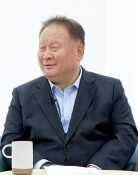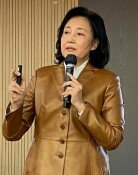Real estate market heats up in North Korea
Real estate market heats up in North Korea
Posted May. 19, 2018 07:22,
Updated May. 19, 2018 07:22
“Real estate investment is booming in Pyongyang and border areas of North Korea and China after the inter-Korean summit took place on April 27,” Fudan University Center for Korean Studies Manager Chung Ji-yoong, who visits North Korea several times a month, said at an open forum held in South Korea early this month.
Words have it that Chinese investors are scrambling to make investments in North Korea and the real estate market is heating up in North Korea. British daily newspaper The Times reported, “The prospect of peace on the Korean Peninsula has prompted a surge of inquiries from speculators in China about real estate in Pyongyang.” Chinese real estate brokerage website Uoolu, which helps Chinese buyers make real estate investment in foreign countries, even gave an account of how to unofficially buy property in North Korea.
Does North Korea allow foreign investment in property? Legally, it is impossible for foreigners to run real estate business or buy and sell property with the purpose of making any financial gains in North Korea. But unofficial sales do take place in secrecy. The Housing Act enacted by North Korea in 2009 states that all residents should receive a residency certificate known as an “ipsajeung” from municipal governments and live in the designated apartment. In North Korea, all property is basically in the possession of the country. Therefore, real estate transaction in North Korea means buying and selling the residency rights.
But the situation is changing in recent years. Experts say North Korean residents build, buy and sell houses with the purpose of gaining financial advantages. “The North Korean government builds houses according to necessity or development plans. But from long ago, wealthy individuals have been building apartments on highly profitable lands and selling them,” said Dr. Chung Eun-i of the Korea Institute for National Unification. “Housing supply in recent years is led by the private sector in North Korea.”
Polarization of wealth has been seen for a long time. There are both “10,000-dollar apartments” and “100,000-dollar apartments” in Pyongyang. “As early as 2015, there were 20,000-dollar apartments in Pyongyang. Now the prices are likely to be higher,” said Dr. Chung. “The Taedong River divides Pyongyang into East and West. The apartment prices of West Pyongyang, where government agencies such as State Political Security Department are situated, are far higher than other areas.”
Some experts have wishfully speculated that the Trump Tower would possibly be built in Pyongyang in the future. But the common view is that we have a long way to go until South Korean companies enter the North Korean real estate market. If North Korea opens up its market, it would attract foreign investment mostly in five special economic zones and 19 economic development zones, which were designated last year.
Ja-Ryong Koo bonhong@donga.com







